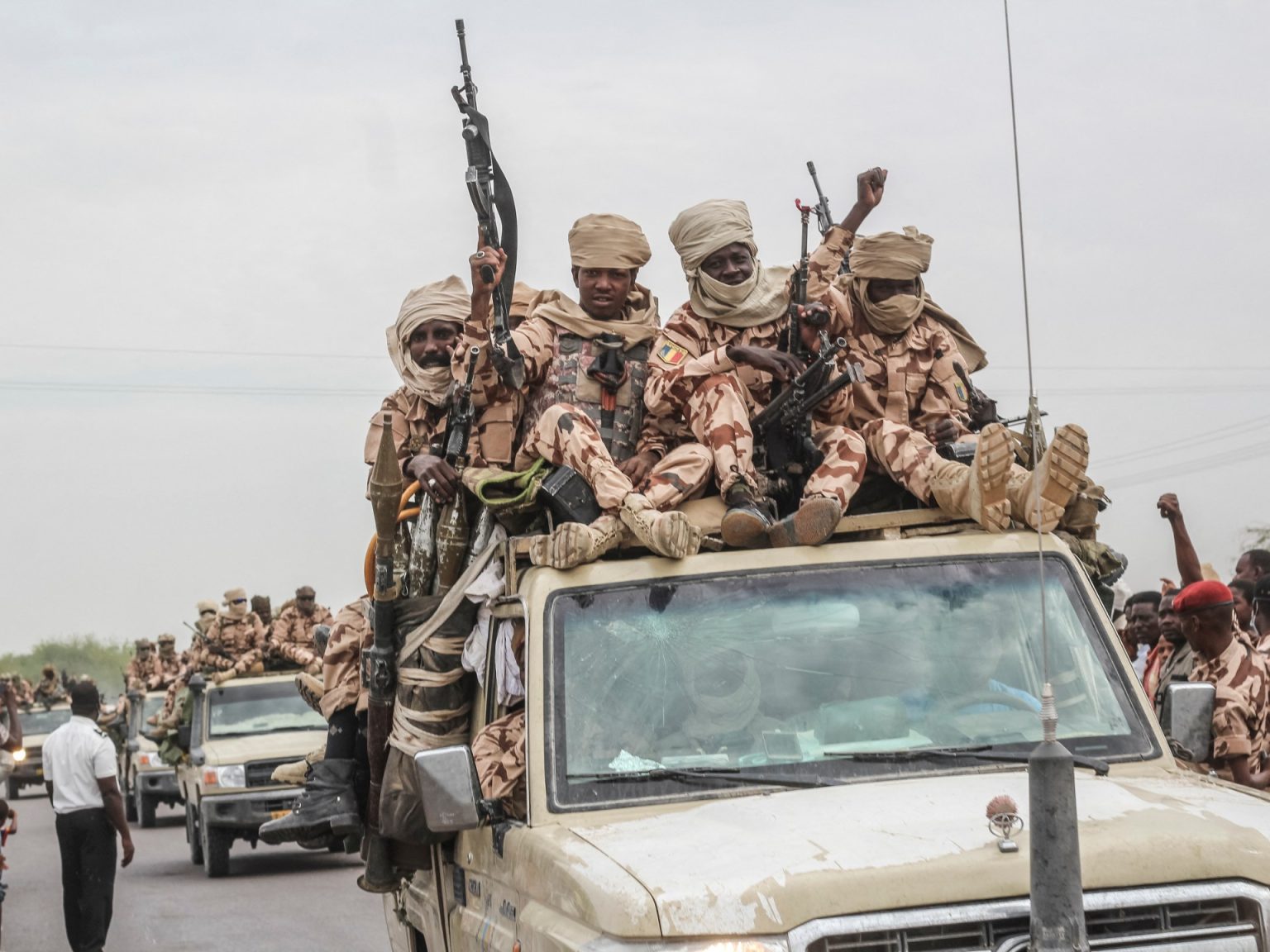The attempted assault on the presidential complex in N’Djamena, Chad’s capital, on Wednesday evening, resulted in the deaths of at least 19 individuals. Eighteen of the casualties were identified as members of a 24-man armed group that launched the attack, while one fatality was a member of the Chadian security forces. The government swiftly responded, neutralizing the attackers and asserting control over the situation. Foreign Minister Abderaman Koulamallah, who also serves as the government spokesman, confirmed the figures, stating that six attackers were injured, along with three security personnel, one critically. He emphasized that the attempt to destabilize the government had been thwarted. The incident unfolded during an official visit by Chinese Foreign Minister Wang Yi, who had met with President Mahamat Idriss Deby and other high-ranking officials just hours before the attack. President Deby was reportedly within the presidential complex at the time of the assault.
The attack occurred against a backdrop of recent political developments in Chad, including a contested general election held less than two weeks prior. The government presented the election as a crucial step towards transitioning from military rule, however, it was marred by low voter turnout and allegations of fraud by opposition parties. The opposition’s call for a boycott paved the way for candidates aligned with President Deby to dominate the electoral process. Furthermore, Chad’s relations with its former colonial power, France, have undergone significant shifts. In November, Chad terminated defense and security agreements with France, deeming them obsolete, leading to the withdrawal of approximately 1,000 French military personnel stationed in the country. This follows a similar trend in the Sahel region, with Mali, Burkina Faso, and Niger, all under military governance, also expelling French forces. Additionally, Senegal and Ivory Coast have requested the removal of French military bases from their territories.
The identity and motives of the attackers remain somewhat unclear. While a security source initially suggested the attackers were members of the Boko Haram armed group, Foreign Minister Koulamallah later dismissed this claim, describing them as intoxicated “Pieds Nickeles” – a reference to inept criminals from a French comic strip. Another security source, however, characterized the incident as a likely “attempted terrorist attack.” This source detailed how individuals in three vehicles targeted military camps surrounding the president’s office, only to be neutralized by the army. Residents in the vicinity reported hearing intense bursts of gunfire during the confrontation.
President Mahamat Idriss Deby assumed power in 2021 following the death of his father, longtime President Idriss Deby, who was killed by rebels. The elder Deby had ruled Chad since seizing power in a coup in the early 1990s. This transition of power has underscored the ongoing political instability and security concerns in the country. Chad, despite its oil wealth, remains one of Africa’s poorest nations, grappling with poverty, political instability, and the threat of armed groups operating within its borders. The attempted attack on the presidential complex highlighted the fragility of the current political climate and the ongoing security challenges facing the nation.
The geopolitical implications of the attack and the shifting dynamics in the Sahel region are significant. France’s diminishing military presence in the region, coupled with the rise of military governments, raises questions about the future of security cooperation and counterterrorism efforts in the area. The withdrawal of French forces from Chad, following similar departures from other Sahelian countries, reflects a growing sentiment against continued French military involvement in the region. This changing landscape presents new challenges for regional stability and the fight against extremist groups like Boko Haram, which continue to pose a threat to security in the Sahel.
The attack on the presidential complex in N’Djamena serves as a stark reminder of the complex and interwoven challenges facing Chad. The incident underscores the volatile political environment, the country’s ongoing struggle with security threats, and the evolving regional dynamics following France’s military withdrawal. The conflicting narratives surrounding the attackers’ identities further complicate the situation, highlighting the need for thorough investigation and transparent communication from the Chadian government. As Chad navigates its political transition and seeks to address security concerns, the international community will be closely watching developments in the country. The future stability of Chad and the broader Sahel region hinges on effective governance, robust security measures, and international collaboration to counter the threats posed by extremist groups and address the underlying socio-economic challenges that fuel instability.

